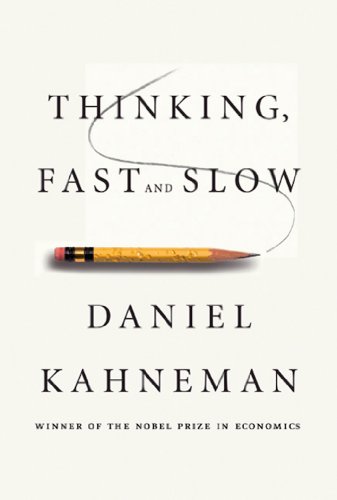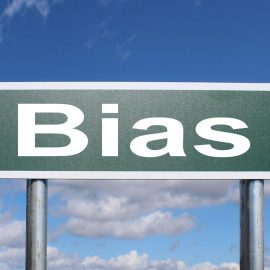

This article is an excerpt from the Shortform summary of "Thinking, Fast and Slow" by Daniel Kahneman. Shortform has the world's best summaries of books you should be reading.
Like this article? Sign up for a free trial here .
What is Daniel Kahneman’s happiness theory? How does it involve the two selves, and what does it have to do with memory?
Daniel Kahneman’s happiness theory is the idea that we have two selves, the experiencing self and the remembering self, and that the remembering self influences our overall happiness more than the experiencing self. This theory was introduced in Kahneman’s Thinking, Fast and Slow.
We’ll cover why happiness depends more on memory of experiences than on the experiences themselves and how this knowledge can help you be happier.
Daniel Kahneman: Happiness and the Two Selves
The new focus of Kahneman’s recent research is happiness. Happiness is a tricky concept. There is in-the-moment happiness, and there is overall well being. There is happiness we experience, and happiness we remember.
Daniel Kahneman’s happiness theory presents two selves:
- The experiencing self: the person who feels pleasure and pain, moment to moment. This experienced utility would best be assessed by measuring happiness over time, then summing the total happiness felt over time. (In calculus terms, this is integrating the area under the curve.)
- The remembering self: the person who reflects on past experiences and evaluates it overall.
The remembering self factors heavily in our thinking. After a moment has passed, only the remembering self exists when thinking about our past lives. The remembering self is often the one making future decisions.
But the remembering self evaluates differently from the experiencing self in two critical ways:
- Peak-end rule: The overall rating is determined by the peak intensity of the experience and the end of the experience. It does not care much about the averages throughout the experience.
- Duration neglect: The duration of the experience has little effect on the memory of the event.
We tend to prioritize the remembering self (such as when we choose where we book vacations, or in our willingness to endure pain we will forget later) and don’t give enough to the experiencing self.
For example, would you take a vacation that was very enjoyable, but required that at the end you take a pill that gives you total amnesia of the event? Most would decline, suggesting that memories are a key, perhaps dominant, part of the value of vacations. The remembering self, not the experiencing self, chooses vacations!
Daniel Kahneman on Increasing Happiness
Kahneman’s push is to weight the experiencing self more. Spend more time on things that give you moment-to-moment pleasures, and diminish moment-to-moment pain. Try to reduce your commute, which is a common source of experienced misery. Spend more time in active pleasure activities, such as socializing and exercise.
Daniel Kahneman’s Happiness Theory and the Focusing Illusion
Considering overall life satisfaction is a difficult System 2 question. When considering life satisfaction, it’s difficult to consider all the factors in your life, weigh those factors accurately, then score your factors.
As is typical, System 1 substitutes the answer to an easier question, such as “what is my mood right now?”, focusing on significant events (both achievements and failures), or recurrent concerns (like illness).
The key point: Nothing in life is as important as you think it is when you are thinking about it. Your mood is largely determined by what you attend to. You get pleasure/displeasure from something when you think about it. This is a key realization of Daniel Kahneman’s happiness theory.
For example, even though Northerners despise their weather and Californians enjoy theirs, in research studies, climate makes no difference in life satisfaction. Why is this? When people are asked about life satisfaction, climate is just a small factor in the overall question—they’re much more worried about their career, their love life, and the bills they need to pay.
When you forecast your own future happiness, you overestimate the effect a change will have on you (like getting a promotion), because you overestimate how salient the thought will be in future you’s mind. In reality, future you has gotten used to the new environment and now has other problems to worry about.
Daniel Kahneman’s Conclusions on Happiness
Putting it all together – which self should we cater to, the remembering self or the experiencing self?
In Thinking, Fast and Slow, Daniel Kahneman doesn’t have a clear answer, but he rules out that either the remembering self or the experiencing self should be focused on exclusively.
Catering only to the remembering self invites unnecessary suffering. Our memories are fallible, being subject to duration neglect and peak-end rule.
- The remembering self favors short periods of intense joy over long periods of moderate happiness.
- The remembering self avoids long happy periods if it knows a poor ending will come.
- In the extreme, the remembering self would endure decades of pain ending in one jubilee right before death, remembering that joyful moment in the last minutes of life.
Catering only to the experiencing self treats all moments of like alike, regardless of the future benefit.
- Some instances have memories that give more value than others.
- A moment can also alter the experience of subsequent moments.
- Learning music can enhance future playing or listening for years.
- A traumatic event can cause PTSD and misery over a lifetime.
- Making money today can unlock new experiences for your future experiencing self.
- In the extreme, the experiencing self would greedily pursue whatever maximized happiness this moment, with little regard for the future self.
According to Daniel Kahneman’s happiness theory, both the remembering self and the experiencing self must be considered—their interests do not always coincide.
For a population, it’s not clear which to maximize, say for treating health conditions. Should we minimize experienced pain, or should we solve whatever people are most willing to pay to be relieved from? These are all fruitful questions for continuing research and philosophy.
Notes on Daniel Kahneman’s Happiness Theory
- Improving experienced happiness
- Focus your time on what you enjoy. Commute less.
- To get pleasure from an activity, you must notice that you’re doing it. Avoid passive leisure time in places like TV, and spend more time in active leisure time, like socializing and exercise.
- Focusing illusion
- To evaluate your life satisfaction, create a life rubric, where you list the factors and their weightings, then score each of the factors. This might make you happier and grateful for what you have, rather than focusing on single sore points that stick out.
- Reflect on your past experiences to inform future ones—how much did buying something in the past make you happier today? What activity are you really thankful to your past self for doing? Do more of what you appreciate your past self for having done.
- Cater to both your remembering self and your experiencing self.
In general, Daniel Kahneman’s happiness theory suggests you should try to balance attention on both selves.
———End of Preview———

Like what you just read? Read the rest of the world's best summary of "Thinking, Fast and Slow" at Shortform . Learn the book's critical concepts in 20 minutes or less .
Here's what you'll find in our full Thinking, Fast and Slow summary :
- Why we get easily fooled when we're stressed and preoccupied
- Why we tend to overestimate the likelihood of good things happening (like the lottery)
- How to protect yourself from making bad decisions and from scam artists






